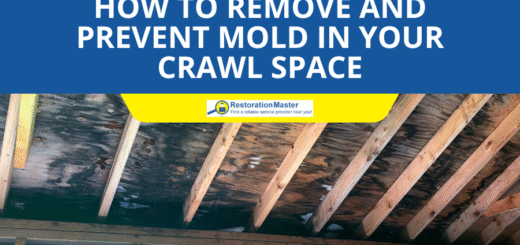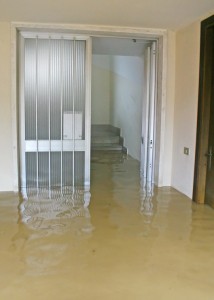What Causes a Water Leak in the Basement?
Everyone can agree that having a water leak in your basement is unpleasant. It can cause major damage to your property by ruining your floors, walls, furniture, and personal belongings. It is important to take precautions to prevent water leaks in your basement so that you can avoid costly damages. We will go over the steps you need to take if you experience a leak in your basement, common causes of water leaks, and how to prevent them.

If you step into your basement and notice that there has been a water leak, it is important to not panic and take the following steps to remediate the situation:
- Keep yourself safe
Always make sure you are wearing rubber boots in a flooded basement and stay as dry as possible. Do not touch any electrical wires so that you do not get electrocuted.
- Find the source of the water leak
You will need to figure out where the water is coming from so that you can remediate the issue. If it’s a plumbing problem, you know you will need to contact a plumbing company, but it if the leak is coming from somewhere else, you will need to figure out where its coming from first.
- Get rid of sitting water
Try to get rid of any standing water using a wet-dry vacuum or by calling a professional water disaster remediation companyA remediation company is a business specializing in cleaning... More to help you get rid of all the water.
Make sure that any materials that can be saved are removed from the area so that you can try to save them. You could also call a water damage restorationWater damage restoration is the professional process of clea... More company and they will remove the moldMold is a type of fungus that grows in damp or humid conditi... More.
Now you know the steps you need to take to remediate any damage caused by water in your basement, however, it is crucial to know what causes water leaks. Here are a few common causes of water damage in basements and how to prevent them.

- Lateral Pressure – This type of pressure is caused when the soil around your basement gets too much water in it and expands, causing the basement wall to crack under all the pressure. You can remediate this issue by injecting expandable polyurethane into the cracks.
- Hydrostatic Pressure Exertion – This is the increase of pressure in the water table. As water level increases through the soil which has absorbed water, there will be a buildup of pressure under the foundation which will cause the water to get through any cracks in your basement floor. A good solutionA solution is a homogeneous mixture of two or more substance... More for this issue is installing drainage tiles. However, you should always check both indoor and outdoor drainage systems you have in place and consult a professional before deciding the best solutionA solution is a homogeneous mixture of two or more substance... More for your drainage issues.
- Badly done landscaping – If your landscaping is not done properly, you can be left with standing water outside your home which will then leak back into your basement. By using dirt, you can create slopes away from your home. Therefore, your landscaping needs to be graded correctly to prevent any water from pooling around your property.
- Dirty and clogged window wells – Sometimes the window wells will get filled up with water and drain into your basement. You can prevent this by installing a drain or by hiring a professional that will clean your well drains so they do not get blocked. You should also install window covers to keep out dirt and debris.
- Broken pipes or leaky appliances – At times, your plumbing may have a leak, or you may have an appliance that leaks which can cause water damage in your basement. If you are not handy with plumbing or fixing appliances, make sure to hire a professional plumber to fix your leaks and ensure no further damage is done.
- Overflowing gutters – If you do not regularly clean your gutters, they may get clogged and they also can get into the basement and erode soil which can cause cracks in the foundation.
- Short downspouts – Your downspouts should always be 10 feet away from your home so that it can be far away from the foundation, so it does not affect it.
- Leaks in the roof – Sometimes if there is a leak in the roof, water can run down the walls and damage them or damage the ceiling.
- Pavement that has settled – Sometimes the pavement can crack and settle and cause rainwater to flow to the house. You will need to get your pavement replaced or repaired and ensure that it does not flow toward the home, but away from it.
- Storm sewer backup – At times when there are heavy rains, the storm sewer system can become clogged, or the water level becomes too high and backs up into your basement.

Leaks in the basement can be devastating so it is important to remember to regularly check your basement for cracks, leaks, and signs of seeping water to prevent further costly damage in your home.
Did you experience a water leak in your basement recently? Are you in need of water damage remediation? Call a professional for water damage restoration. Highly skilled professionals identify the source of the water leak, remove any excess water, and restore water damaged areas.












